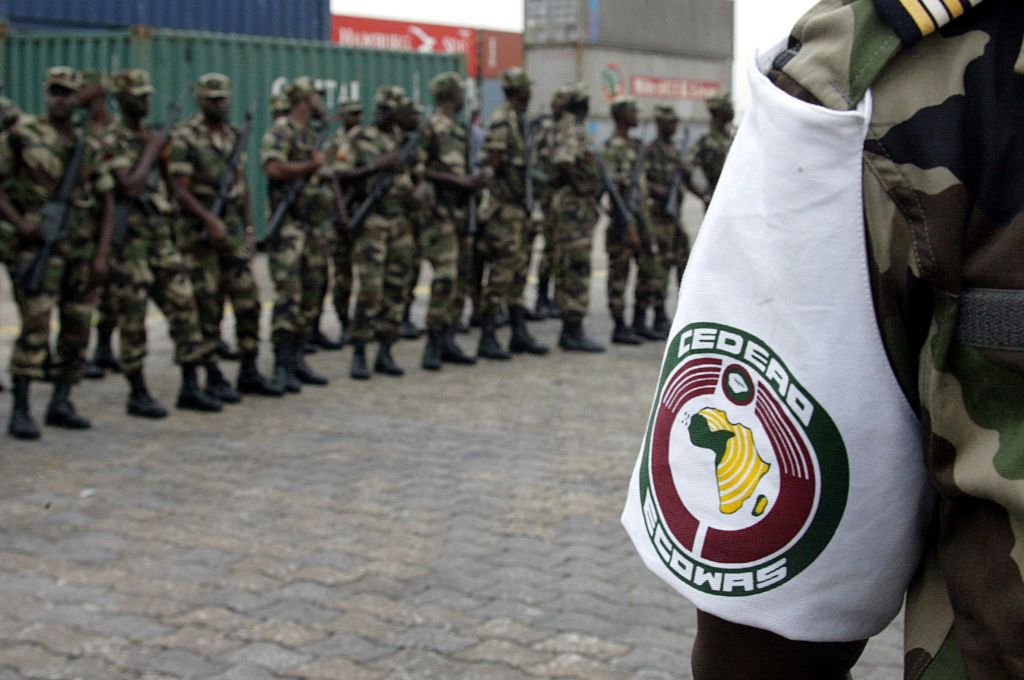The Economic Community of West African States (ECOWAS) has announced plans to activate its standby force as terrorism from Burkina Faso, Mali and Niger continues to spread.
On the sidelines of a March 11 ECOWAS meeting, Nigerian Defense Minister Mohammed Badaru Abubakar said the plan is to mobilize 5,000 ECOWAS Standby Force (ESF) troops and other resources across the region, which is a hotbed of terrorist violence. The ESF will combat terrorism, banditry, violent extremism, cross-border crimes and political instability. It was not clear when or where the ESF will be deployed first.
“The activation of this force underscores our collective determination to confront the stretch of terrorism with regards to insecurity and ensure the safety and security of our citizens,” Abubakar told Voice of America (VOA).
Security analyst Kabiru Adamu welcomed the move but expressed concerns about its effectiveness.
“The last detail that we know, even though that could change, is that it will have two operational bases within the subregion,” Adamu told VOA. “We know that the ability to even acquire the 5,000-man troops has been a bit challenged. The countries that initially agreed to contribute, three of them are no longer with ECOWAS. So now ECOWAS will have to look back within its members to see who among them will augment the gap.”
Burkina Faso, Mali and Niger left ECOWAS on January 29 and formed the Alliance of Sahel State (AES). Despite the split, the regional bloc hopes to collaborate with the countries to tackle terrorism and other challenges, ECOWAS President Omar Alieu Touray said.
Adamu said he believes ongoing relationships between ECOWAS and the AES could be necessary.
“Given the conditions of the military contingents in almost all the countries, it will be very difficult for these things to be met in a manner that would allow speedy deployment,” Adamu told VOA. “The good thing is that the defense and security cooperation between the AES and ECOWAS still stands both multilateral and bilateral. We’re hoping that in spite of the exit, all sides will see the necessity to continue to engage in the security defense.”
ECOWAS has faced increasing challenges in recent years, including regional political instability, internal disagreements and conflicting national interests, according to the Center for Democracy & Socio Economic Development (CDS).
Officials have long debated the ESF’s potential efficacy. During dialogue on the matter at Nigeria’s Abuja School of Social and Political Thought in September 2024, retired Maj. Gen. Nicholas Rogers said the force faces inadequate funding, instability and language barriers.
Rogers, a former commander of the Nigerian military’s Operation Safe Haven, which leads the fight against banditry in Kaduna, Plateau and Taraba States, said the standby force could work only when participating nations have similar identities, adequate technology and relative peace, according to Nigeria’s People’s Gazette newspaper.
“It is difficult for a region that is economically poor to have a standby force, because you’re talking about equipment, technology, troops on the ground, allowance for the troops, medical programs and air support,” Rogers said. “You don’t do standby forces with just paperwork; you must have the financial capability and technology to be able to say you want to have a standby force.”
However, former Ghanaian President Nana Akufo-Addo has argued that the ESF will be crucial for regional stability and security.
“I have no doubt that had it been in existence earlier, it would have served as a deterrent to the multiplicity of coups and the spread of terrorism,” Akufo-Addo said in a GhanaWeb report. “The establishment of this force is essential for maintaining regional stability and security. It will enable ECOWAS to respond swiftly and effectively to threats, uphold democratic governance, and promote peace across West Africa.”

